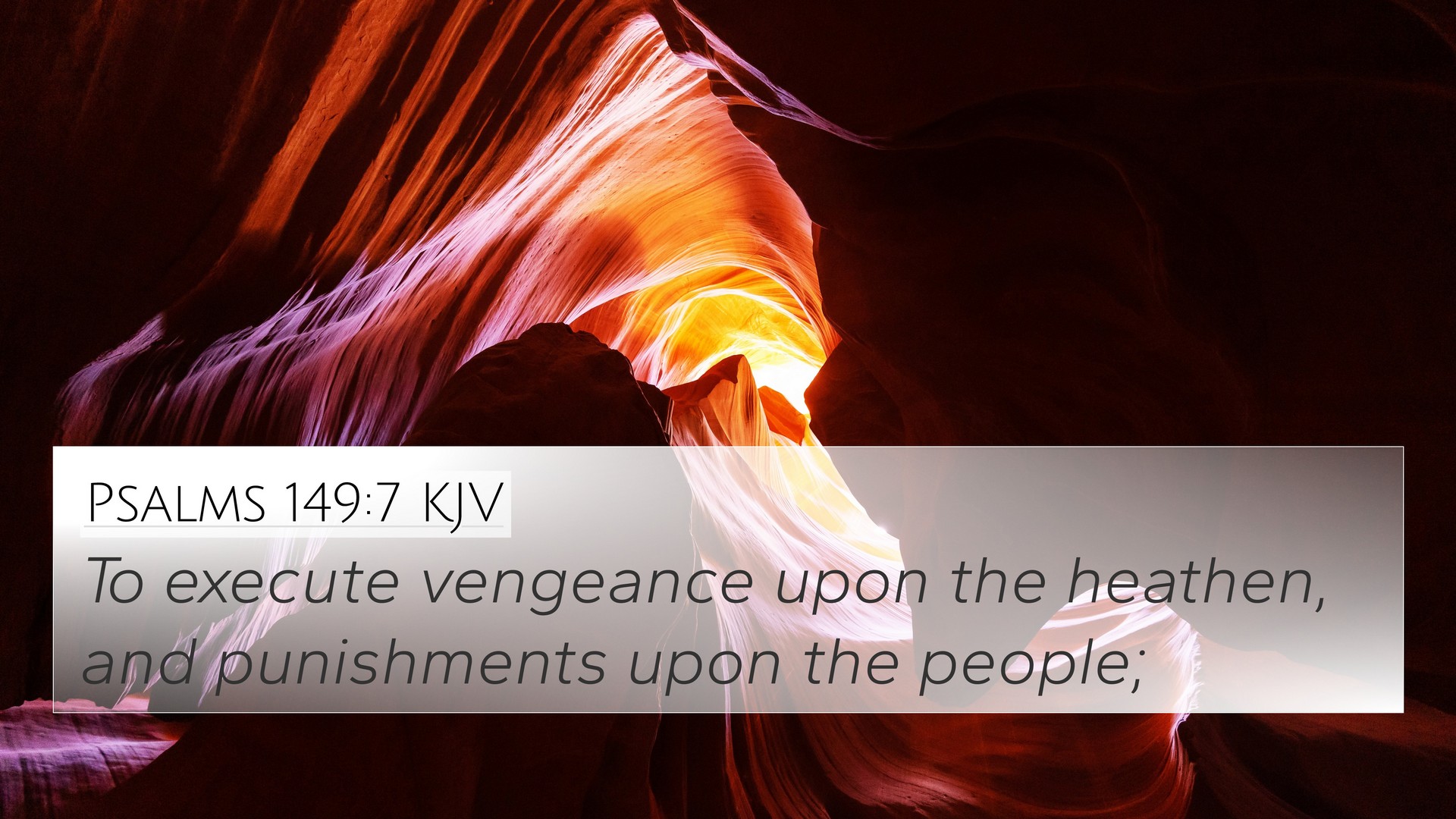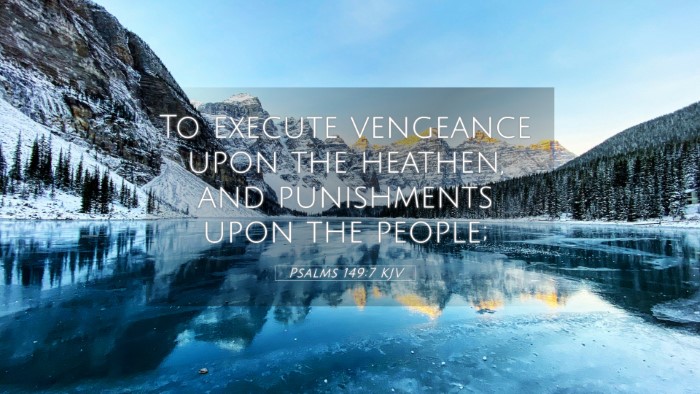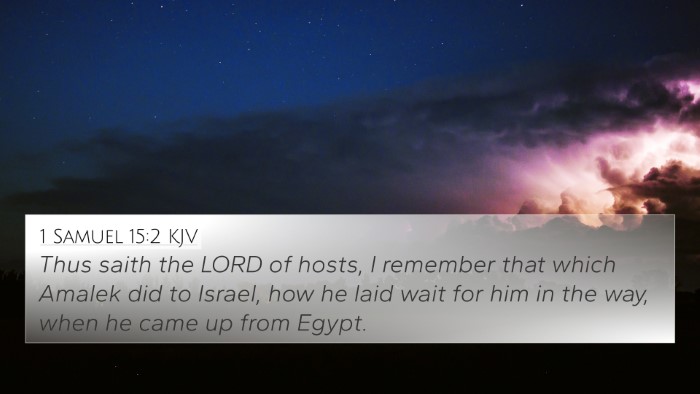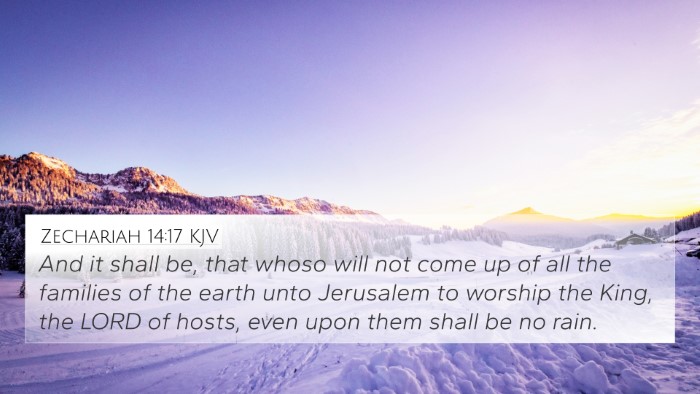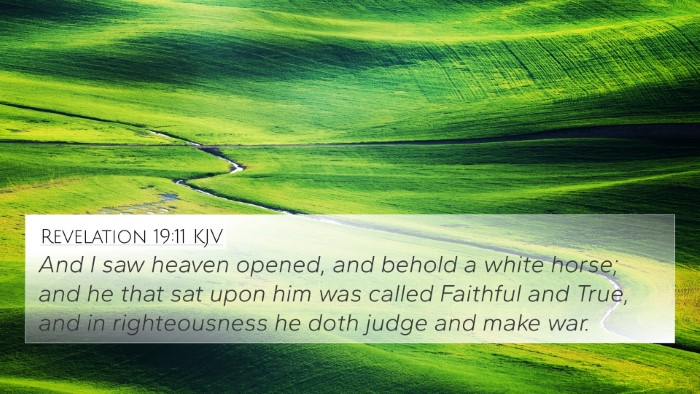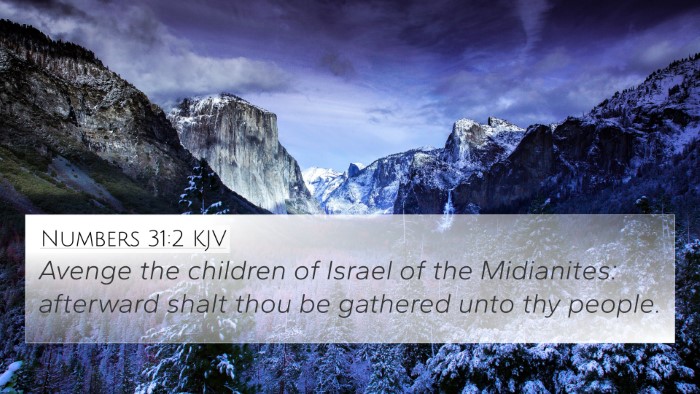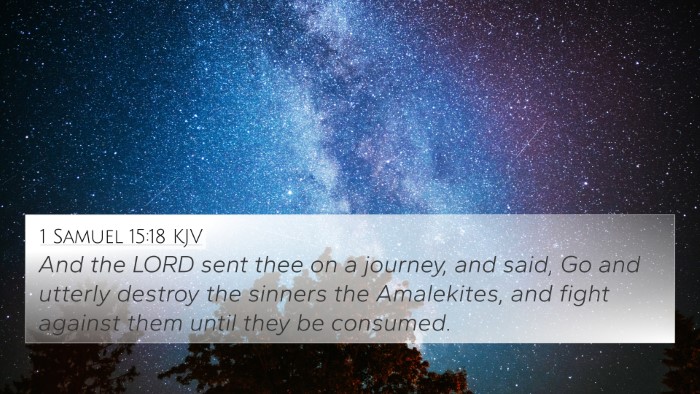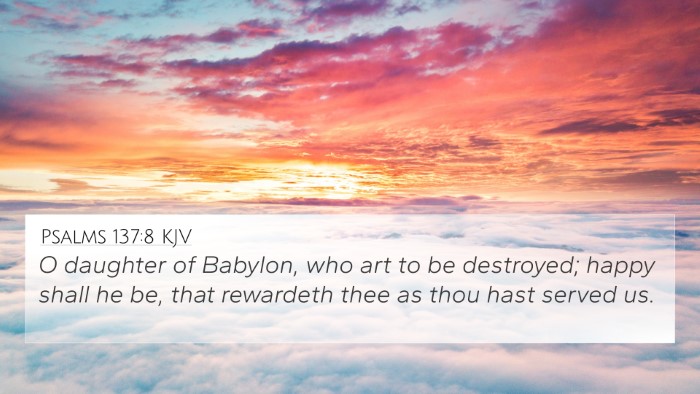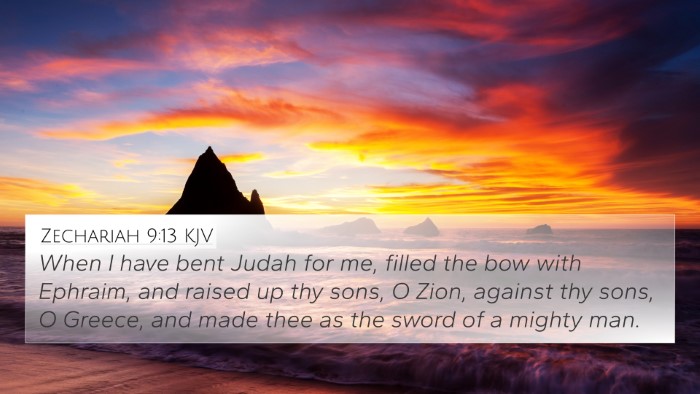Understanding Psalms 149:7
Psalms 149:7 states, "To execute vengeance upon the heathen, and punishments upon the people." This verse captures a significant theological theme concerning God’s justice and retribution. Below, we delve into its meaning by incorporating insights from notable public domain commentaries, including Matthew Henry, Albert Barnes, and Adam Clarke.
Context and Meaning
This psalm is celebrated for its call to worship and joy, celebrating the Israelites’ identity and role as God's chosen people. The verse in question transitions from praise to a declaration of divine justice. Various commentaries emphasize the dichotomy of joy in worship with the sobering reality of divine retribution against unrighteousness.
Matthew Henry's Commentary
Matthew Henry articulates that this verse reflects God's sovereign authority over nations, particularly those outside of Israel. It expresses the idea that God will vindicate His people by executing judgment upon those who oppose His will. Thus, the psalm serves as both a comfort to believers and a warning to those who defy God's commandments.
Albert Barnes' Commentary
Albert Barnes focuses on the broader implications of vengeance mentioned in this verse. He notes that it emphasizes the need for divine justice against oppression and ungodliness. Barnes suggests that the psalmist is not advocating for personal revenge but rather acknowledges God's ultimate power to bring justice against the wicked and assure protection for His people.
Adam Clarke's Commentary
Adam Clarke expands the interpretation by contextualizing the psalm within the framework of the Israelite struggle against their enemies. He suggests that this verse articulates a prophetic vision of justice that is not confined to Israel but extends towards all nations that stand contrary to God's plans. Clarke highlights the importance of interpreting 'heathen' as those who are not aligned with God's covenant.
Thematic Connections and Cross-References
This verse echoes throughout the Bible, revealing a consistent theme of God's justice and the destiny of nations in relation to His people. Here are some relevant cross-references that enhance understanding:
- Isaiah 61:2: "To proclaim the year of the Lord's favor and the day of vengeance of our God; to comfort all who mourn." - This verse illustrates the duality of God's purpose, combining grace with judgment.
- Deuteronomy 32:35: "Vengeance is mine, and recompense, for the time when their foot shall slip; for the day of their calamity is at hand, and their doom comes swiftly." - Here, God makes clear that retribution belongs to Him alone.
- Romans 12:19: "Beloved, never avenge yourselves, but leave it to the wrath of God, for it is written, 'Vengeance is mine, I will repay, says the Lord.'" - This New Testament affirmation resonates with the Old Testament principle found in Psalms 149:7.
- Revelation 6:10: "They cried out with a loud voice, 'O Sovereign Lord, holy and true, how long before you will judge and avenge our blood on those who dwell on the earth?'" - The cry for justice connects the desires of the faithful across both testaments.
- Psalm 94:1: "O Lord, God of vengeance, O God of vengeance, shine forth!" - This psalm underscores the appeal to God for justice against evil and oppression.
- Micah 5:15: "And I will execute vengeance in anger and wrath on the nations that did not obey." - A clear indication of divine retribution in the prophetic writings.
- Matthew 25:46: "And these will go away into eternal punishment, but the righteous into eternal life." - Jesus speaks of the final judgment, affirming the theme of recompense woven throughout scripture.
Final Reflections
Psalms 149:7 serves not only as a declaration of God’s judgment but also invites believers to understand the broader narrative of divine justice threaded through the scriptures. The joy of salvation, as emphasized in earlier verses of the psalm, finds its balance in the righteous vengeance that God promises against those who choose wickedness over His ways.
In our pursuit of understanding, recognizing the connections between Bible verses regarding divine justice helps establish a cohesive biblical worldview. The richness of these Bible verse cross-references opens further avenues for comparative Bible verse analysis by linking the Old and New Testament themes of justice and mercy, ultimately enhancing our understanding of God's character.
